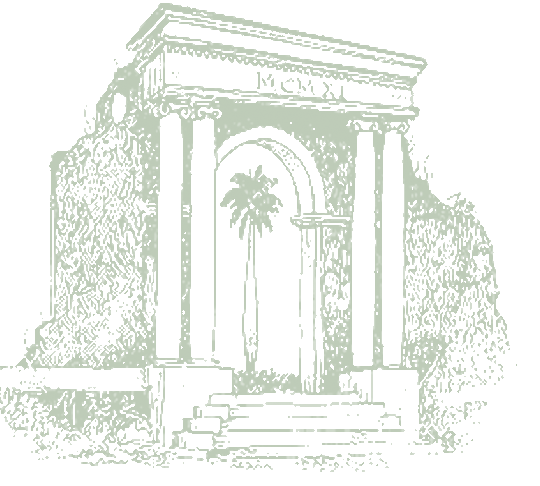Graduate Program Requirements
Placement tests are offered one to two weeks before the start of doctoral studies (first semester). Students take five placement tests to evaluate their knowledge at the undergraduate level in: analytical, biochemistry, inorganic, organic, and physical chemistry. Students are not required to take the Biochemistry test if they have not taken this class. The main objective of the placement test is to measure knowledge of chemistry and to encourage students to review and prepare for graduate study before starting the Doctoral Program. The exams will assist the faculty in assessing the students’ strengths and weaknesses. The faculty will provide the students with recommendations for addressing deficiencies.
Graduate students select their research advisor and establish their Graduate Studies committee during their first semester in the Program. This committee should be constituted by professors related to the student’s research project and consist of 4 to 6 professors, at least half of whom must belong to the student’s department. Professors from other institutions and government or industrial scientists may also belong to the committee, but they must receive an ad honorem appointment (Certificación 02-45).
All Ph.D. faculty members of the Department may serve as research advisor (President) of the student’s Graduate Studies Committee. The students’ Graduate Studies committee should meet every semester to evaluate academic and research progress, and to provide advice.
The student will prepare a Plan of Study in consultation with his Graduate Studies committee. The Plan of Study should be turned in to the Registrar (with a copy to the Office of Graduate Studies) during the second semester in the Program. The Registrar’s Office will evaluate requests for graduation by checking whether the student has completed the courses listed in the Plan of Study.
The Plan of Study lists the courses that students will take, and is an excellent planning tool for the student and the research advisor. It also helps the Department Director in determining the courses to offer in the future. The Plan of Study documents previous graduate level courses accredited towards the Ph.D. degree by the Graduate Committee. The courses will not be accredited until the Plan of Study is submitted and approved by the Department Director.
The student shall present a written proposal for research that defines his doctoral thesis project, and will defend it orally in front of the thesis committee.
The research proposal requirement involves two very important activities. The first is the preparation of the proposal, and the second is its defense before the student’s committee. The student’s Graduate Studies committee and the research advisor will advice the student in the preparation of the research proposal. In addition, the Graduate Studies Office has a Guía para la Preparación de Propuestas, Tesis e Informes de Proyecto en el Recinto Universitario de Mayagüez (http://grad.uprm.edu/normastesis.htm). The content and precise format of the research proposals will be determined by each individual Graduate Studies committee until the Graduate Committee establishes a format. After the oral defense, the student’s research advisor will provide the student with a letter summarizing the recommendations of his Graduate Studies committee. The letter will indicate a time frame for the committee to meet with the student and evaluate the student’s progress. For example, for the first three oral defenses that were celebrated the Graduate studies committees agreed to meet within a period of 6 – 8, 10 – 12, and 10 – 14 months, respectively.
After approving the courses (excluding the doctoral seminar) the student should pass a doctoral exam that measures knowledge at the graduate level. This should happen during the third year of studies. The exam will be offered in August and in January. It will consist of questions previously agreed upon by a committee that will be designated by the coordinator of the program according to the student’s area of specialty, and the courses that students have taken. Students who fail the exam a second time will be suspended as indicated in Certificación 09-09.
Every student will work one semester or four months in an academic, industrial, or government lab outside the UPR-Mayagüez campus. The Practicum increases the student’s knowledge and skills in the chosen area of specialty and develops their communication and work skills through exposure to multiple research groups. The Practicum is organized to help the student advance towards completion of the Ph.D. Since the department does not have funds to subsidize the internship, research advisors and the graduate students must seek funding for the internship through grants or scholarships.
It is recommended that the four month period be flexible, but cumulative to include a period of at least four months. This period may be distributed as follows:
After returning from the Practicum, students must present a progress report, make a presentation in the Graduate Seminar or in a scientific conference such as the Puerto Rico Senior Technical meeting and receive a formal evaluation from the Practicum supervisor or host. Upon approval of the report, the President of the students Graduate Studies committee will submit a letter (similar to that in Appendix VII) to the Graduate Coordinator, informing him of the completion of this requirement. Our Ph.D. students have carried out their Practicum in several internationally recognized laboratories such as those of:
The student should perform independent research that represents a significant contribution to furthering knowledge in their specialty area. Students will be required two accepted publications before defending their doctoral dissertation.
The student will be considered a Doctor of Philosophy candidate when he or she successfully completes all courses listed in the students Plan of Study, successfully defend the research proposal and pass the doctoral exam.
The Graduate Committee will evaluate requests for transfer of courses from previous graduate work towards the Ph.D. in Applied Chemistry. Please communicate with the Graduate Coordinator in regards to questions related to transfer of courses from M.S.
|


